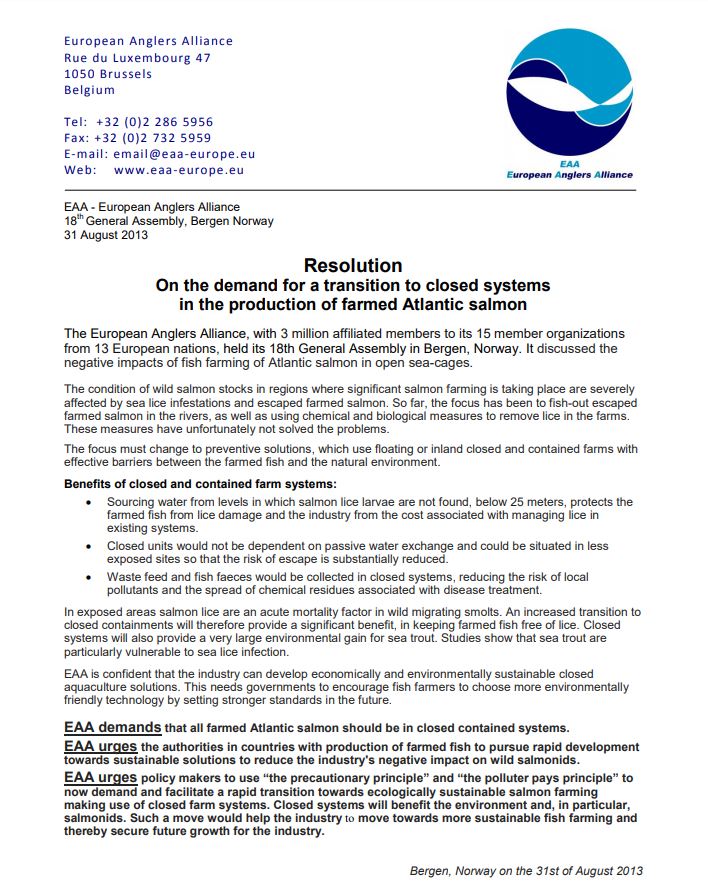EAA Resolution on the demand for a transition to closed systems in the production of farmed Atlantic salmon

The European Anglers Alliance, with 3 million affiliated members to its 15 member organizations from 13 European nations, held its 18th General Assembly in Bergen, Norway. It discussed the negative impacts of fish farming of Atlantic salmon in open sea-cages.
The condition of wild salmon stocks in regions where significant salmon farming is taking place are severely affected by sea lice infestations and escaped farmed salmon. So far, the focus has been to fish-out escaped farmed salmon in the rivers, as well as using chemical and biological measures to remove lice in the farms. These measures have unfortunately not solved the problems.
The focus must change to preventive solutions, which use floating or inland closed and contained farms with effective barriers between the farmed fish and the natural environment.
Benefits of closed and contained farm systems:
- Sourcing water from levels in which salmon lice larvae are not found, below 25 meters, protects the farmed fish from lice damage and the industry from the cost associated with managing lice in existing systems.
- Closed units would not be dependent on passive water exchange and could be situated in less exposed sites so that the risk of escape is substantially reduced.
- Waste feed and fish faeces would be collected in closed systems, reducing the risk of local pollutants and the spread of chemical residues associated with disease treatment.
In exposed areas salmon lice are an acute mortality factor in wild migrating smolts. An increased transition to closed containments will therefore provide a significant benefit, in keeping farmed fish free of lice. Closed systems will also provide a very large environmental gain for sea trout. Studies show that sea trout are particularly vulnerable to sea lice infection.
EAA is confident that the industry can develop economically and environmentally sustainable closed aquaculture solutions. This needs governments to encourage fish farmers to choose more environmentally friendly technology by setting stronger standards in the future.
EAA demands that all farmed Atlantic salmon should be in closed contained systems.
EAA urges the authorities in countries with production of farmed fish to pursue rapid development towards sustainable solutions to reduce the industry's negative impact on wild salmonids.
EAA urges policy makers to use “the precautionary principle” and “the polluter pays principle” to now demand and facilitate a rapid transition towards ecologically sustainable salmon farming making use of closed farm systems. Closed systems will benefit the environment and, in particular, salmonids. Such a move would help the industry to move towards more sustainable fish farming and thereby secure future growth for the industry.
Bergen, the 31st of August 2013
For notes and references please download the resolution
Downloads: